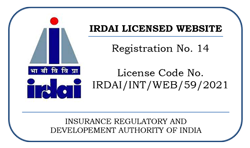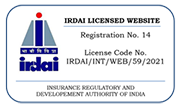Medical Insurance Premiums: Navigating the Complex Terrain
Healthcare costs are a significant concern for individuals and families worldwide. One crucial aspect of managing healthcare expenses is understanding and effectively dealing with medical insurance premiums. In this article, we will delve into the intricacies of medical insurance premiums, exploring factors influencing costs, strategies to lower premiums, and insights into the future landscape of healthcare expenses.
Factors Influencing Medical Insurance Premiums
Age and Health Status
Age and health status are primary determinants of insurance premiums. As individuals age, the likelihood of medical issues increases, impacting premium costs. Maintaining good health can contribute to lower premiums.
Coverage Type and Limits
The type and extent of coverage directly influence premiums. Comprehensive coverage with lower deductibles typically comes with higher premiums. Understanding individual healthcare needs is crucial for finding the right balance.
Geographical Location
Medical costs vary by location. Areas with higher healthcare expenses often experience higher premiums. Considering the regional impact on premiums is essential for accurate budgeting.
Lifestyle Factors
Certain lifestyle choices, such as smoking or engaging in high-risk activities, can elevate insurance premiums. Lifestyle modifications may lead to cost savings.
Choosing the Right Coverage
Assessing Individual Healthcare Needs
Before selecting a policy, it's vital to assess individual healthcare needs. A tailored approach ensures adequate coverage without unnecessary expenses.
Balancing Coverage and Cost
Striking a balance between coverage and cost is challenging but essential. Tailoring a policy to individual needs prevents overpaying for unnecessary features.
Understanding Policy Terms and Conditions
Policy terms and conditions vary. Understanding the fine print helps avoid surprises and ensures clarity regarding coverage.
Ways to Lower Medical Insurance Premiums
Wellness Programs and Discounts
Many insurance providers offer wellness programs and discounts for healthy living. Engaging in these programs can lead to premium reductions.
Comparing Different Insurance Providers
Shopping around for the best deal is crucial. Different providers offer varying rates, and comparing options can result in significant savings.
Utilizing Available Discounts and Incentives
Insurance providers often offer discounts for various reasons, such as bundling policies or maintaining a good driving record. Taking advantage of these incentives can lower premiums.
Impact of Deductibles and Copayments
Explanation of Deductibles and Copayments
Understanding deductibles and copayments is essential. These out-of-pocket expenses impact overall healthcare costs.
How They Affect Premium Costs
Increased deductibles and copayments frequently result in reduced premium amounts
Strategies to Manage Out-of-Pocket Expenses
Strategically managing out-of-pocket expenses involves budgeting and planning for potential healthcare costs. Health savings accounts (HSAs) are one option for mitigating these expenses.
The Role of Insurance History
How Previous Claims Affect Premiums
Insurance history plays a role in premium calculations. People who have a track record of making frequent claims could encounter elevated premium costs. Maintaining a favorable history is key.
Strategies for Maintaining a Favorable Insurance History
Proactively managing health and minimizing claims contribute to a positive insurance history. Regular check-ups and preventive measures can aid in achieving this.
Government Programs and Subsidies
Overview of Government Assistance Programs
Government assistance programs aim to make healthcare more accessible. Understanding eligibility criteria and available programs is crucial for those seeking financial support.
Eligibility Criteria for Subsidies
Certain individuals may qualify for subsidies, depending on income and other factors. Exploring eligibility and applying for subsidies can significantly reduce premium costs.
How to Apply for Government Assistance
Navigating the application process for government assistance requires attention to detail. Seeking guidance from relevant agencies or professionals can streamline this process.
Understanding Premium Fluctuations
Economic Factors Influencing Premium Changes
Economic factors, such as inflation and changes in healthcare costs, can lead to premium fluctuations. Staying informed about these factors aids in anticipating changes.
Industry Trends and Their Impact on Costs
Monitoring industry trends provides insights into potential premium changes. Adapting to evolving trends can help individuals prepare for shifts in healthcare expenses.
Tips for Negotiating Premiums
Communicating with Insurance Providers
Open communication with insurance providers is crucial. Discussing needs and exploring potential discounts or customized plans can lead to more favorable premium terms.
Seeking Discounts or Customized Plans
Some insurance providers may offer discounts or customized plans based on individual circumstances. Exploring these options can result in cost savings.
Addressing Myths and Misunderstandings
Various myths surround medical insurance premiums. Addressing common misconceptions clarifies the actual factors influencing premium costs.
Conclusion
In conclusion, navigating the complex terrain of medical insurance premiums requires a proactive and informed approach. By understanding the factors influencing premiums, exploring cost-saving strategies, and staying abreast of industry trends, individuals can effectively manage their healthcare costs. Balancing coverage and affordability is achievable through careful consideration and strategic decision-making. In the ever-evolving landscape of healthcare, being proactive in premium management is crucial for financial well-being.




